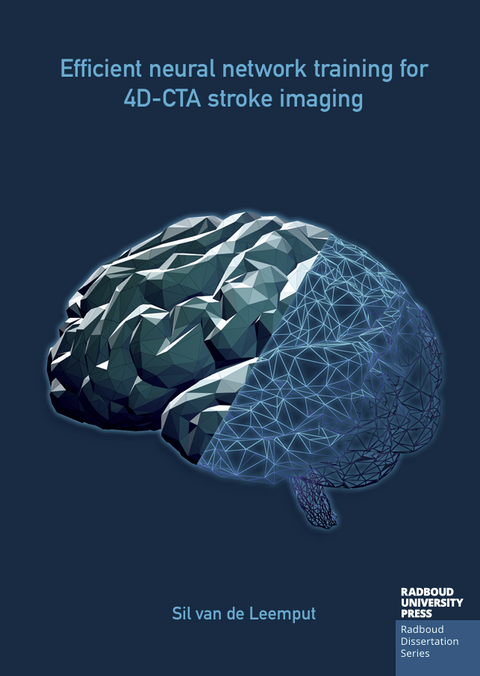Efficient neural network training for 4D-CTA stroke imaging
S. van de Leemput
- Promotor: B. van Ginneken and M. Prokop
- Copromotor: R. Manniesing
- Graduation year: 2024
- Radboud University, Nijmegen
Abstract
Stroke is a medical emergency that occurs due to either a blocked blood vessel or a brain bleed, necessitating swift and precise diagnosis by clinicians to ensure effective treatment. 4-dimensional Computed Tomography Angiography (4D-CTA) images, which can be obtained in just seconds, offer detailed information about the brain's vessels, blood flow, and structures, thus supporting rapid and accurate stroke diagnosis. However, the large size and complexity of 4D-CTA images pose significant challenges. This research aims to assist clinicians and researchers by providing two deep learning applications tailored for 4D-CTA images and a generic deep learning framework. The first application enables accurate and fast segmentation of white matter, gray matter, cerebrospinal fluid, and vasculature from 4D-CTA images. The second application reconstructs non-contrast CT images from 4D-CTA, allowing further research towards simplification of the stroke imaging workup. Additionally, the research introduces MemCNN, an open-source deep learning framework designed to reduce memory requirements during neural network training through reversible operations. The contributions of this thesis lay the groundwork for the further development of automated methods for analyzing 4D-CTA images in the context of stroke and provide accessible tools for memory-efficient training of neural networks.
